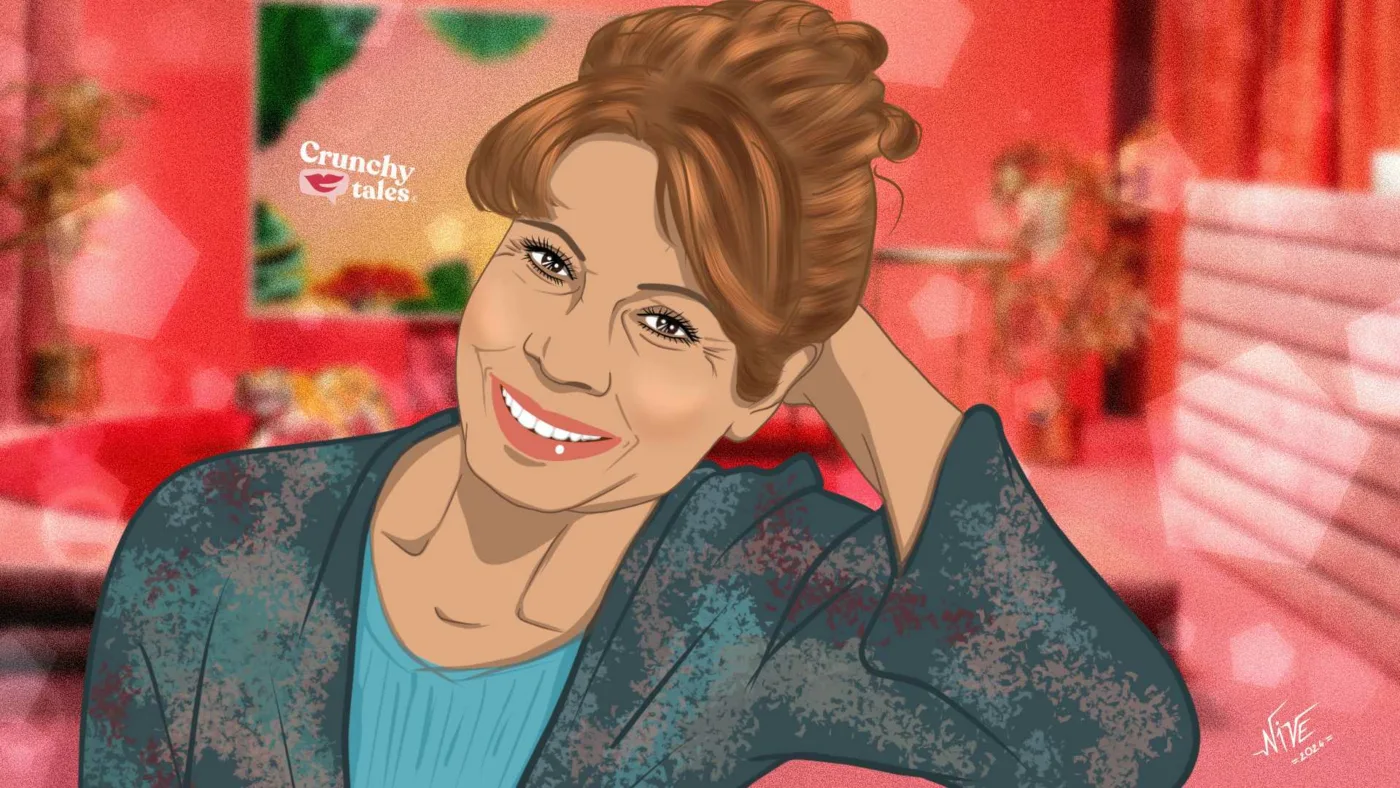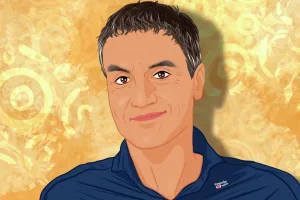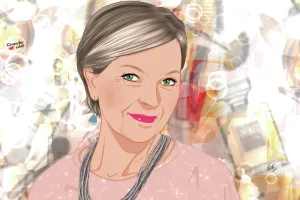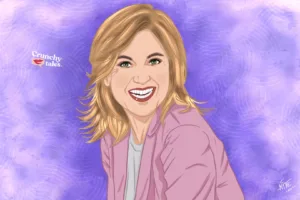Age Disruptor Mariann Aalda: “We’ve Gotta Take the Shame Out of Our Game”
In a world quick to sideline women over a certain age, Mariann Aalda defies expectations. Honoured by AARP as an “Age Disruptor” for her advocacy against ageism, the actress, hypnotherapist, and “age-full” evangelist inspires women to embrace reinvention and redefine life over 50 with energy and sassiness. Definitely, a “crunchy” woman!
A true pioneer in television, Mariann captivated audiences as attorney DiDi Bannister on Edge of Night and continued to shine with roles like Dr. Grace Battles on Guiding Light and Lena Hart on Sunset Beach. From dramas to sitcoms like The Royal Family and Designing Women, her impact is undeniable.
Off-screen, Mariann has lived a rich life as a mother, wife, “outlaw,” and more—reflecting resilience and authenticity. In this interview, she shares her insights on breaking barriers, ageing playfully, and what it means to be a woman who truly “walks her talk.”
Mariann, your career spans sitcoms, soap operas, and now, pro-aging advocacy. What’s driven you to take on such a wide range of endeavours?
Getting to tell an enlightening or purely entertaining story that can educate or captivate an audience; getting to discover the complexities of, and breathe life into, an absorbing character, that is the work – and the joy – of being an actor. And I will take on any genre and gravitate toward any medium that offers me an opportunity to do that, whether it’s in a sitcom or soap opera; in television, film or live onstage.
I became a pro-age advocate when those opportunities became scarcer as I got older and was forced to find a new career when – after thirty years in the business – I could no longer make my living as an actress. It happened to coincide with the death of my father; my mother’s cancer diagnosis and becoming her primary caretaker, and my husband deciding he didn’t want to be married anymore – all within an eighteen-month period in my early fifties.
I turned to hypnosis to handle the stress and ended up becoming a hypnotherapist, myself, enrolling in a one-year training program at the Hypnosis Motivation Institute (HMI) in Tarzana, CA. During my residency there I started working with women just like me who were in the throes of midlife anxiety and depression. Although their circumstances and presenting issues varied, the cultural culprit of ageism was a common denominator. My job became not so much to hypnotize them but to snap them out of the societal trance they were under that women lose value – social and sexual currency – with age.
The positive suggestions I gave my clients took root in my own subconscious mind, propelling me to reclaim my acting career. My first endeavour was a solo show I wrote and performed in the HMI auditorium, Snap Out of It…You’ve Only Been HYPNOTIZED into Believing You’re Over the Hill! The overwhelming response showed me how much women needed to hear that message. For the past twenty years, I’ve devoted my life to delivering it as a performance artist, stand-up comic and motivational speaker.
As one of the first Black female heroines in daytime television with your role as DiDi Bannister on Edge of Night, how did that experience shape your views on diversity in Hollywood? How do you feel about the representation of older Black women in media today?
Actually, it was an incident when my son was four, that shaped my views on the importance of diversity in film and television. One evening while I was cooking dinner, he was watching television and I heard him exclaim, “Uh-oh, here comes the bad guy!” When I asked him how he knew he was the bad guy, he laughed at me and gave me a look that questioned my mommy’s intelligence. “Because he’s brown!” he said, amused that he knew an answer to something his mommy didn’t. The fact that my child was being indoctrinated that brown people were bad because of something he saw on television broke my heart.
That was in the 1970s when film and TV were rife with stereotypes of non-white characters. Through the NAACP I got involved in an “Orchids and Onions” letter-writing campaign to change that. When we saw characters we found disturbing, we wrote onion letters to the advertisers to complain and when there were positive portrayals, we’d write orchid letters of praise.
DiDi Bannister was an attorney and when I got cast on Edge of Night, there still weren’t that many strong, black female professional characters in series-regular roles in daytime or in primetime TV, so I felt a big responsibility that she was someone black people – especially my son, who was nine by then – could be proud of.
The portrayal of racial, gender and sexual diversity has vastly improved since then, but more nuanced and complex characterizations of older adults have been lagging. The good news is that there’s strength in numbers, and as the population has gotten older, representation has gotten better, as exemplified by the recent turn in my own career.
Last year, I won a “Best Actor/Duo” award with Donald Watson at the LA Film Festival for our portrayal of two older adults wondering if they would ever find love again after the death of their spouses, in the short film, To Grieve Or Not to Grieve. And this year, at the age of 76, I had my very first starring role in a feature film! Entitled, Spawns, it was accepted into The Cannes Film Festival, and I got to go and participate on a panel about diversity.
The movies’s writer-director, Tamieka Briscoe offered me the role of the badass family matriarch and media mogul without an audition after hearing my passionate entreaty for more – and better – roles for older women on the social audio app, Clubhouse.
Then, Donald Watson and Dominic Oliver, the producers and stars of Ben & Tony, the older adult, indie sitcom-pilot I shot a couple of years ago, decided to re-edit it as a stand-alone short and enter it in film festivals. The very first submission won me a “Best Supporting Actress” award this past September in the Los Angeles Independent Shorts competition. And this past spring, I shot nine episodes of the streaming soap opera, The Bay, in the recurring role of Violet Givens, who’s entangled in the deep, dark secrets of two prominent families.
All around, the media is doing a much better job today at representing diversity in society than it did 20-30 years ago. And since the United States has a 60-year-old Black-South Asian woman currently running for – and who may soon be – President, I think that will continue to be the case for older Black women, especially. Art tends to imitate life, even though it may take a moment for it to become commercially accepted.
You call yourself an “AGE-FULL evangelist.” Can you explain what that means to you and how you hope to redefine what it means to age, especially for women?
I began substituting AGE-FULL a few years ago, whenever someone would reference me as AGELESS as a compliment. To me, “ageless” is an admonishment to getting older. It’s like telling a Black person: “When I look at you, I don’t see colour.”
No!!! The reasoning behind the push for DEI (diversity, equity and inclusion) is that people want and need to be seen, respected and appreciated FOR who they are, not in spite of. Diminishing one’s age by saying they’re “ageless,” suggests that getting older – and with women, looking older – is something to be embarrassed about.
That’s why so many women lie about their age. And that’s why my IG handle is @mariannaalda_
In your TEDx Talk, you discuss standing up to ageism like one would stand up to a bully. What are some of the most common “bullying” tactics society uses to undermine older adults, and how can individuals fight back?
The biggest one is that while racial, gender and ethnic jokes are verboten, making fun of ageing and older people is somehow still acceptable. We need to nip that in the bud…especially when we do it to ourselves. My hypnotherapy training taught me about the need for us to pay attention to how we talk to ourselves when we’re talking about ourselves. Our subconscious mind is always listening, and it doesn’t get the joke in self-deprecating humour. It takes it literally and programs us accordingly. The more you tell yourself you’re having a “senior moment,” the more of them you’ll have.
Your solo show, Gettin’ Old is a Bitch…But I’m Gonna Wrestle That Bitch to the Ground, which tackles ageing with humour and insight. How do you balance humour with serious messages about ageing, and why do you think comedy is such a powerful tool in this conversation?
To quote the lyrics of Robert B. Sherman sung by Julie Andrews in the movie, Mary Poppins: “A spoonful of sugar helps the medicine go down.” Humour is a hypnotic modality because laughter can lower the gates of the defence mechanisms our subconscious minds build to resist hearing difficult truths about things we want to avoid. For example, this is how I address having uterine cancer and a total hysterectomy: “I liken my hysterectomy to having an internal Brazilian. I mean, if you’re going to landscape the runway, why not de-clutter the terminal? I’m still good for happy landings!”
A woman who’d heard that at one of my shows came up to me two years later at another show to tell me she had been diagnosed with cancer and was scheduled for a hysterectomy the following week. She had put her surgery off a week just so she could come to my show and tell me that my attitude toward my own cancer diagnosis had made her less afraid. Now that’s powerful.
You’ve described midlife as the ‘adolescence of elderhood.’ Can you elaborate on this idea and how it might help others rethink their own ageing process?
Menopause is a lot like puberty. They’re both in-between stages. Adolescence signals the end of childhood while you’re not yet an adult. Menopause is the dawning of older adulthood even though you’re not quite there yet. Both stages augur big life changes, and fluctuating hormone levels, and can be scary. The important thing is to not hold on to the stage you’re outgrowing and to embrace the one you’re growing into with optimism, curiosity and gratitude you get to go on that journey.
You’re a strong advocate for living life to the fullest at any age. What are some of your secrets to maintaining vitality and zest for life as you age? Has humour helped you navigate the challenges of ageing?
I practice S.N.A.P– a discipline I devised to maintain a zest for life throughout my life. It consists of these principles (S) Self-love, Self-care, Sensuality, Spirituality; (N) NLP, No!, Naughty, Nice; (A) Awareness, Acceptance, Adaptability, Appreciation; (P) Passion, Purpose, Play, Pride. I’m writing a book on it, but you can put your own spin on it.
I promise that if you consciously incorporate these principles into your daily life you will discover more vitality and joy in it.
What advice would you give to any woman who feels like her prime is behind her?
My tough love advice is: Get over yourself! “Prime” is what YOU make it, so stop dwelling on the past and set some goals for your future! Use S.N.A.P as a guide and find a mid-life coach or therapist if you need one. You don’t have to figure it out all by yourself or try to go it alone.
As someone who has consistently broken barriers and redefined what it means to age with grace, humour, and power, what legacy do you hope to leave behind—not just for future generations of performers, but for society as a whole in terms of how we view ageing?
Well, first of all, I hope I’ve set a good example. And second, I hope to keep doing it for a long, long time, so ask me again in twenty years!
Like this post? Support Us or Sign up to our newsletter to get more articles like this delivered straight to your inbox!






This Post Has 0 Comments